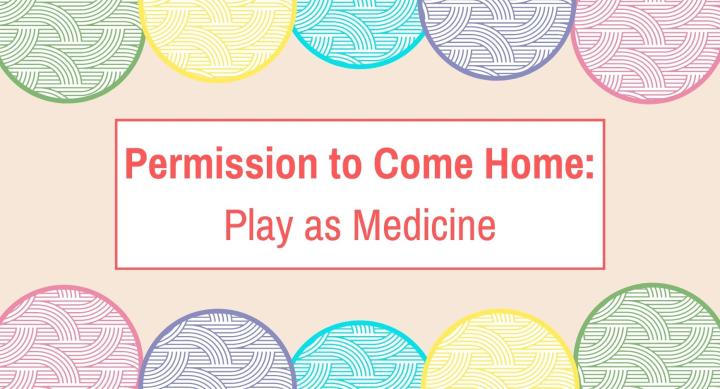
Take a moment and pause to check-in with yourself.
How is your heart feeling at this moment? Are you feeling connected to yourself or dear ones? What emotions are you noticing arising?
What is the quality of your thoughts? Are they feeling pressured or urgent? Are the thoughts repetitive or calmly flowing?
And how is your body feeling at this moment? Are there places of ease or tension? Is there heat in different places or coolness?
The last few days (weeks, months, years) have been overwhelming for many of us, especially for BIPOC and the AAPI community. These times of crises and pain narrow our scope of vision, as the push into urgency and survival mode helps us respond to the threats but limits us as we oftentimes lose access to our full self. (Our sense of joy, our resources, our community, our identity)
A newly published book by Taiwanese American psychologist Dr. Jenny Tzu-Mei Wang called "Permission to Come Home: Reclaiming Mental Health as Asian Americans," specifically invites members of the Asian diasporas and children of immigrants to slow down and explore different spaces in their life that might be calling for their attention. “To unpack the stories and narratives that might impact (us), and that shape our mental health in profound ways. To wade through (our) painful experiences in order to understand how that pain has shaped (us). And finally, to draw (you) closer to home, a space that perhaps has eluded many (of us) for a long time. A place of acceptance, belonging, healing, and freedom.” Dr. Wang’s book explores different areas of practice that might allow us to come back to connection with ourselves, to offer grounding and greater awareness in a way that frees up a broader view. An article on the Gottman blog contains an excerpt from Dr. Wang’s book, exploring the permission to play and how play can be medicine. https://www.gottman.com/blog/permission-to-come-home-play-as-medicine/
Dr. Wang shares that she hopes to “unwrap from the idea that play is not a waste of time...I’m a firm believer that play affirms our self-worth, the sense that I can just be. And when I’m in that state of being, I’m fully present. I’m really fully living.”
Dr. Wang invites us to give ourselves permission to play, even amid the pandemic and ongoing crises.
